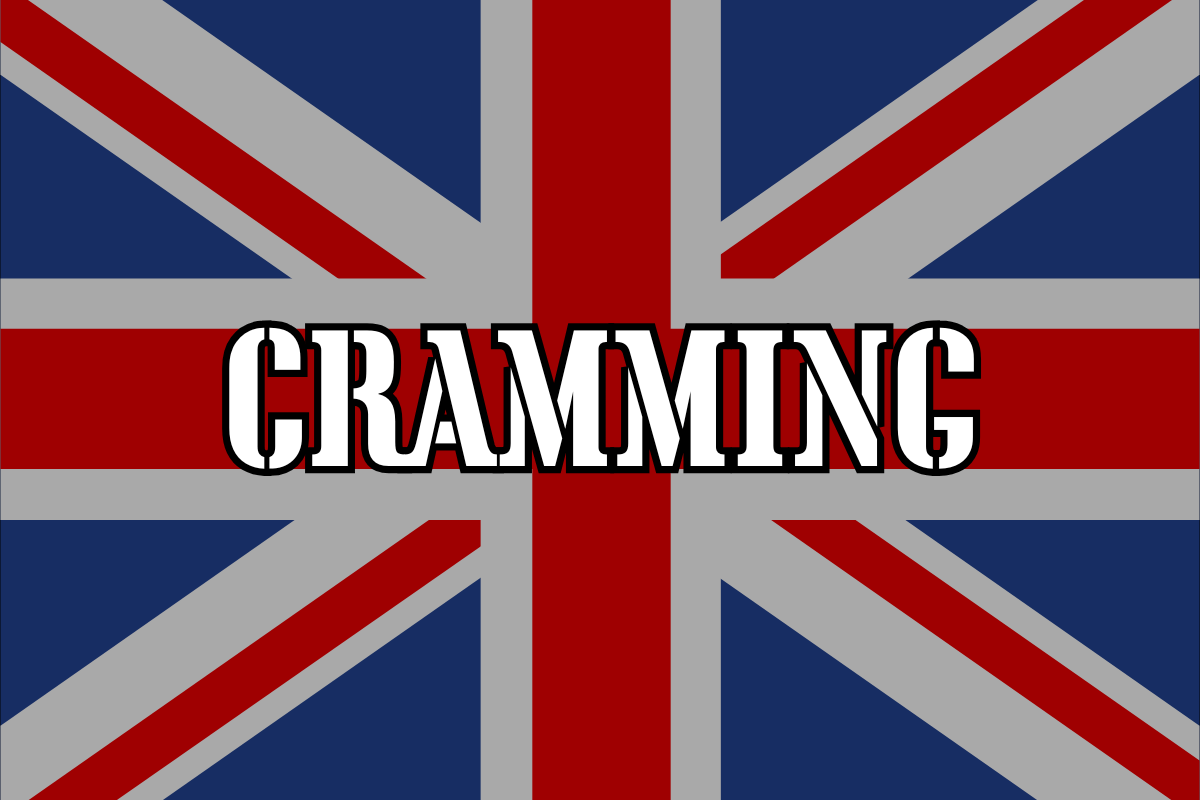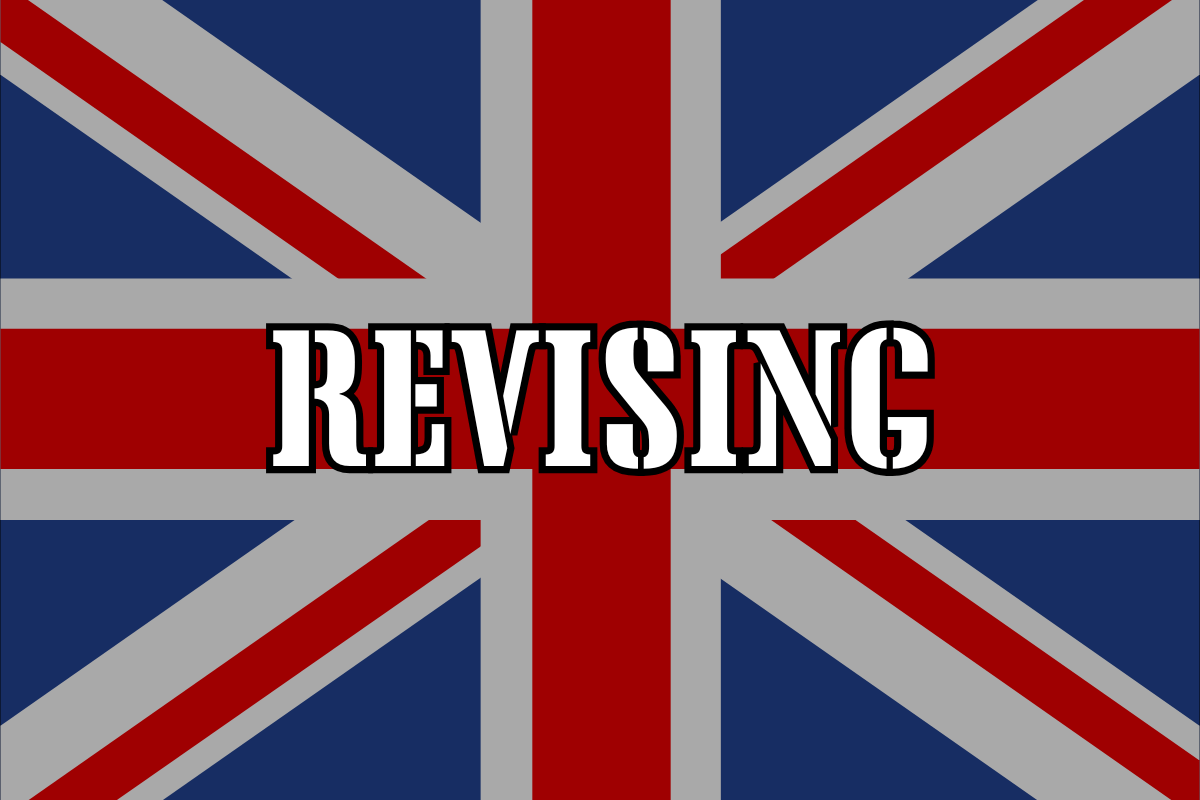Studying can be a grind, especially when you’re up against deadlines or trying to cram a semester’s worth of knowledge into your brain overnight.
In Britain, just like anywhere else, students have their own lingo to describe the highs and lows of hitting the books.
From “pulling an all-nighter” to “swotting,” these terms paint a vivid picture of the student experience.
Whether you’re revising for finals, wading through textbooks, or just trying to knuckle down and focus, there’s a slang term to describe your study session.
Let’s dive into some British slang for studying and see what it reveals about the culture of learning across the pond.

Bashing out

Originally a phrase used to describe performing a task with great intensity or speed, “bashing out” has been adopted into the context of studying to mean focusing hard on revision or completing assignments in a concentrated effort.
The term’s exact origins are unclear, but it’s been a part of British colloquial speech for several decades, embodying the act of forcefully confronting study materials.
Examples in sentences:
- “I’ve got to bash out a few hours of study before the exam tomorrow.”
- “She was bashing out her essay until late at night.”
- “We’re planning to bash out some serious revision this weekend.”
- “He bashed out all his study notes in one evening.”
- “They were bashing out practice questions to prepare for the final.”
Burning the midnight oil

The phrase “burning the midnight oil” originates from the pre-electric lighting era, where oil lamps were used for illumination after dark.
It metaphorically refers to working or studying late into the night.
The term has been in use since at least the 17th century, symbolizing dedication and hard work, often in the context of last-minute study sessions or completing assignments.
Examples in sentences:
- “I was burning the midnight oil to finish my thesis on time.”
- “She’s been burning the midnight oil every night to prepare for her exams.”
- “To get through medical school, you’ll often find yourself burning the midnight oil.”
- “He realized the importance of not burning the midnight oil too frequently to avoid burnout.”
- “They burned the midnight oil together, studying for their joint project.”
Cramming

“Cramming” refers to intensely absorbing a large amount of information in a short period, typically just before an exam.
The term suggests a lack of regular study and the urgency of last-minute preparation.
It’s been a part of educational slang since the 19th century, reflecting the stressful exam preparation periods familiar to students worldwide.
Examples in sentences:
- “I spent the whole night cramming for the history test.”
- “Cramming isn’t the best way to learn, but sometimes it’s necessary.”
- “She’s good at cramming and still scores well on exams.”
- “The library was full of students cramming for finals.”
- “He regretted not studying earlier, leaving him no choice but to cram.”
Grinding

Though “grinding” originally comes from the gaming world, where it refers to repetitive tasks to achieve a certain level or score, it has been adopted into study slang to mean working hard or diligently on academic tasks.
The term captures the perseverance and continuous effort required to master course material or prepare for exams.
Its use in academic contexts has grown with the rise of gaming culture, emphasizing the endurance aspect of studying.
Examples in sentences:
- “I’ve been grinding on my calculus problems all weekend.”
- “She’s really grinding to get that first-class degree.”
- “We’re going to grind out study sessions every day till exams.”
- “He grinds harder than anyone I know when it comes to studying.”
- “They formed a study group to grind through the material together.”
Hitting the books

“Hitting the books” is a phrase that dates back to the early 20th century, metaphorically suggesting the act of physically attacking one’s textbooks with vigor.
It’s a colloquial way to describe beginning to study seriously, especially when preparing for an upcoming exam or needing to catch up on coursework.
The imagery evokes a proactive and energetic approach to learning.
Examples in sentences:
- “It’s time to hit the books if I want to pass my finals.”
- “She hit the books as soon as she got home from school.”
- “They’re hitting the books every night to get into their preferred university.”
- “I need to start hitting the books earlier next semester.”
- “After a short break, he hit the books again with renewed energy.”
Knuckling down

“Knuckling down” is an expression that implies getting serious about one’s studies or tasks at hand.
The phrase likely originates from the game of marbles, where players start or resume play by placing their knuckles on the ground for a shot, symbolizing readiness and concentration.
Over time, it has evolved to represent a dedication to academic pursuits or any work requiring focus.
Examples in sentences:
- “With exams approaching, it’s time to knuckle down and study.”
- “She knuckled down on her research project to meet the deadline.”
- “After a semester of distractions, he finally knuckled down.”
- “They formed a study group to knuckle down on their revision.”
- “Knuckling down now will pay off when you get your results.”
Pulling an all-nighter

The term “pulling an all-nighter” refers to the practice of studying throughout the night without sleeping, usually in preparation for an exam or to complete a project.
This phrase captures the desperation and intensity of studying under time pressure, often fueled by caffeine and the fear of not being prepared.
While effective in the short term, it’s not recommended as a regular study habit due to the negative impact on health and cognitive function.
Examples in sentences:
- “I had to pull an all-nighter to finish my essay on time.”
- “Pulling an all-nighter before the exam is not the best strategy.”
- “She’s pulling an all-nighter to catch up on her study backlog.”
- “They pulled an all-nighter together to prepare for their presentation.”
- “Despite pulling an all-nighter, he felt unprepared for the test.”
Revising

“Revising” is the British term for studying or reviewing material learned, especially before an exam.
Unlike the American usage of the term, which can mean altering or editing written work, in the UK, it specifically refers to the process of going over notes, textbooks, and other study materials to reinforce knowledge and prepare for assessments.
The practice of revision is a cornerstone of the British educational system, emphasizing understanding and memorization.
Examples in sentences:
- “I’ve scheduled my week for revising my course materials.”
- “Revising with friends can make the process more bearable.”
- “He spent the weekend revising for his upcoming exams.”
- “Finding a quiet place for revising can improve concentration.”
- “She uses flashcards and mind maps as part of her revising strategy.”
Swotting

“Swotting” is a quintessentially British term that describes the act of studying hard, with a particular emphasis on memorization.
The term “swot” can be used both as a noun to describe a person who studies excessively and as a verb for the act of studying intensively.
It’s believed to have originated in the late 19th century, derived from the slang “swot,” which meant to sweat.
Over time, it came to be associated with the laborious effort involved in studying.
Examples in sentences:
- “He was swotting up on his history notes all night.”
- “I need to swot for my chemistry exam next week.”
- “She’s a real swot, always buried in her books.”
- “They formed a study group to swot together.”
- “Swotting at the last minute is not an effective study method.”
Wading through

“Wading through” study material suggests a slow, laborious process of making one’s way through dense or difficult content.
The imagery evokes the physical effort of moving through water, indicating that the studying process can sometimes feel overwhelming or excessively challenging.
This phrase is often used when dealing with complex subjects that require time and patience to understand fully.
Examples in sentences:
- “I’m wading through a mountain of articles for my thesis.”
- “She’s wading through the textbook chapter by chapter.”
- “They were wading through the legal jargon for their law class.”
- “Wading through this material is taking longer than I expected.”
- “He found himself wading through the notes he’d missed.”

